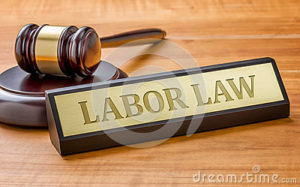
From our years of experience, it is very clear that employers who follow these six simple rules (which just happen to be labor laws and regulations that are mandatory for all empployers, in both public and private sectors, in Israel) will reduce drastically the number of suits by employees and former employees. Most of the lawsuits filed in recent years deal with these issues. They are really simple to adhere to and can save you literally time and money.
1. Sign all new employees, within 30 days of their start date (or within 7 days of start date if they are under 18 years of age), on a notification of employment conditions or a contract. This should be done prior to starting to work, or first thing on the first day of work along with other technical things like filling out 101 tax form, issuing a time card, etc
If you use a contract it must contain all of the information on the notification of employment terms form, which is downloadable here:
http://economy.gov.il/Employment/WorkRights/WorkingRelationshipsCreation/Pages/WorkingConditionsNotification
This will illiminate any disputes regarding terms of employment of employees and possible monetary lawsuits for failure to provide this for sums of up to 15,000 sh without need to prove any damage.
A new notification needs to be issued any time that any of the mandatory details change.
2. Make sure all employees have received their salary, payslip and time-sheet by the 9th of the month following the month of salary being paid (For example: June salary – by July 9th). Make sure the payslip is itemized and clear and includes all mandatory information required by law. Eliminate future lawsuits for up to 5,000 sh for each payslip, without need to prove damge. Failure to provide a time-sheet can result in lawsuits for overtime pay and a fine for each month for each employee by the regulation dept of the Ministry of Economics.
3. Do not fire an employee before correctly holding a preliminary hearing according to protocol and avoid lawsuits of tens of thousands of shekels for Illegal termination.
4. Keep track of all employee’s sick days and vacation days balances to avoid unnecessary disputes during employment and possible monetary lawsuits for failure to do so.
5. Insure your employees with mandatory pension plan after six month’s tenure, if they dont have a previous pension plan, or after three month’s tenure if they do have a previous pension plan – in which case its retroactive to the employee’s start date.
6. The more you are transparent with your payslips: itemizing each payment separately and clearly it will be easier understood and avoid any unnecessary disagreemtns and future lawsuits.
Israpay has over 20 years experience in implementation, setup and fine-tuning payroll programs and we will be happy to assist you in ensuring you comply with all the labor laws, regulations and statuary instructions. Get in touch today and see how we can help you save time and money !

